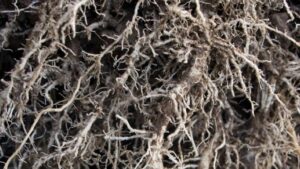Bolstering nitrogen fixation in pea. Understanding how to develop extra-early soybean varieties to enable cultivation in different climates. Creating a potential new class of wheat.
The winners of this year’s Canadian Plant Breeding Innovation (CPBI) Scholarships are doing just that.
On next week’s Seed Speaks, host Marc Zienkiewicz will talk to PhD students Loveleen Kaur Dhillon (University of Saskatchewan), Jérôme Gélinas Bélanger (McGill University) and Ritesh Kumar Yadav (University of Manitoba) about their work, why it’s significant, why they wanted to be in plant science, and their advice for how up-and-coming young science students can be successful in plant science.
Bélanger, 35, is known as an ambitious, original and highly independent researcher who had his own idea to start a PhD research project aimed at identifying novel genes involved in the early flowering/maturity of soybeans using CRISPR-Cas9 and QTL mapping. Currently, his project aims to understand how to develop extra-early soybean varieties to enable cultivation in Canadian regions such as northern Saskatchewan and Alberta. He’s also trying to develop novel genetic soybean transformation techniques that could increase the competitiveness of Canadian plant breeders and seed companies for other traits.
Dhillon’s research broadly addresses the challenge of improving nitrogen fixation in pea. Nitrogen fixation is a key benefit of legume crops, and expanded use of legume crops in cropping systems is a critical approach to reducing greenhouse gasses to address climate change. The 30-year-old’s PhD research has utilized plant breeding, physiology and molecular biology approaches. The first paper from this research was recently published in Field Crops Research. In this paper she demonstrated that pea lines derived from crosses with nodulation mutants produced high grain yield along with higher N fixation potential and seed protein concentration than check cultivars, making them attractive for use in pea breeding programs.
Yadav, 32, is conducting research into the development of genomic selection models for Fusarium head blight resistance and winter hardiness in winter durum, a potential new class of wheat being developed at AAFC Lethbridge Research and Development Centre (Dr. Raja Ragupathy’s breeding program) in collaboration with winter wheat breeders at the University of Manitoba (Dr. Curt McCartney) and AAFC Ottawa (Dr. Gavin Humphreys).
Yadav’s PhD research is part of a winter durum development program being funded by the Western Grains Research Foundation and Sask Wheat. There was a single winter durum cultivar (OAC Amber, 2010) registered in Eastern Canada, and the program at AAFC Lethbridge will provide options for winter cereals growers in Western Canada. Robust genomic prediction models with high accuracy will be developed to screen durum germplasm with FHB resistance and winter hardiness without field phenotypic selection, and the selected non-phenotyped material can be used for developing elite winter durum cultivars using less money, time and resources.
The Canadian Plant Breeding Innovation Scholarships are sponsored by Alberta Wheat, Alberta Barley, C&M Seeds, Canadian Seed Growers’ Association, FP Genetics, Germination, Nutrien Ag Solutions, Richardson, SaskWheat, SeCan, Warburtons, Western Grains Research Foundation and Seeds Canada.













